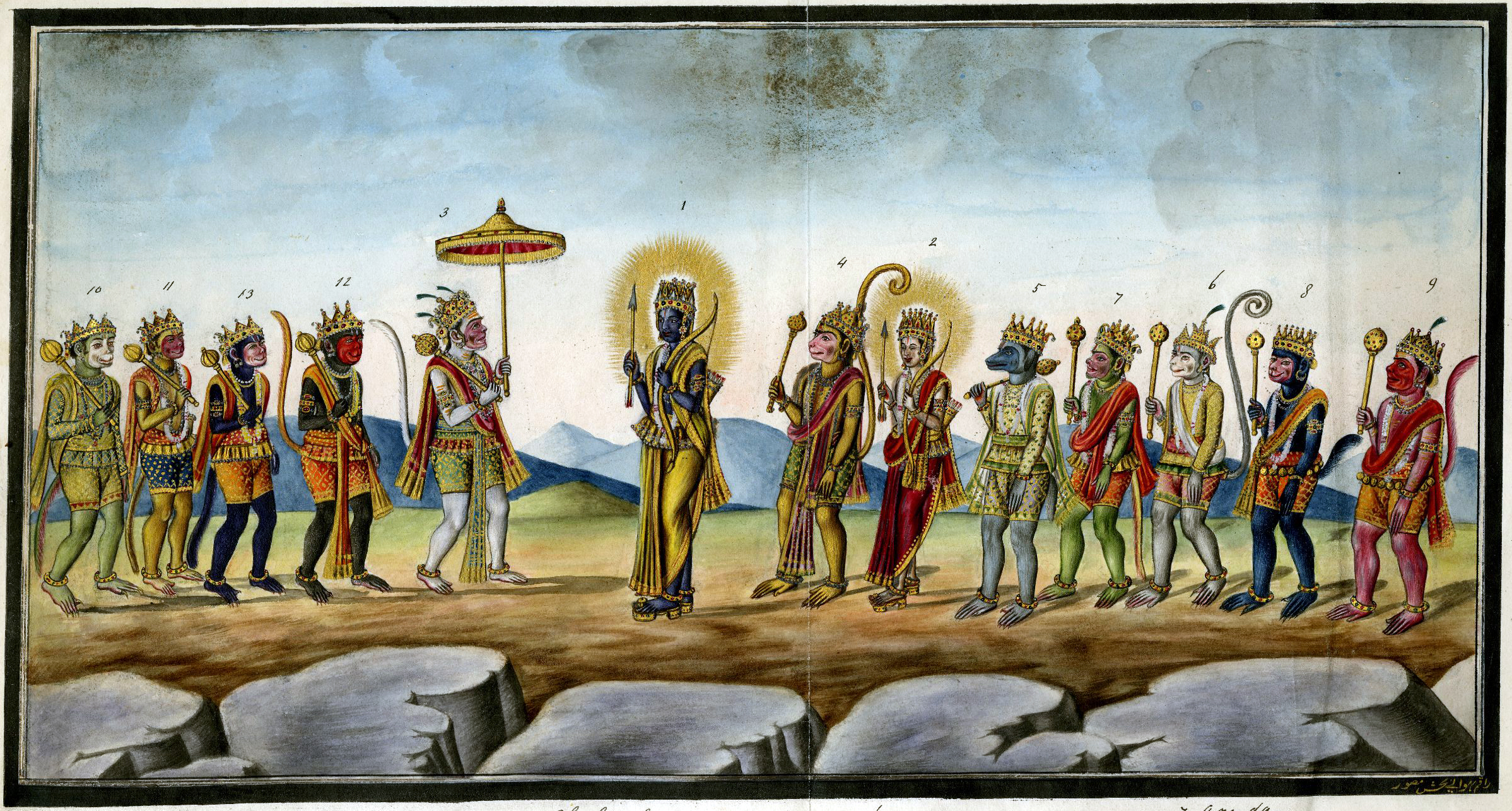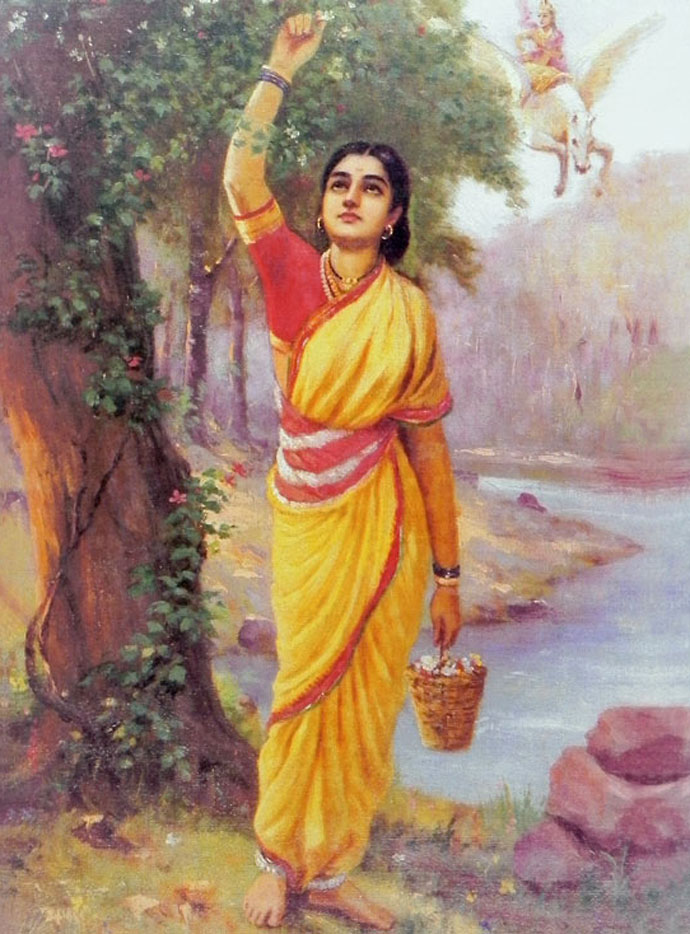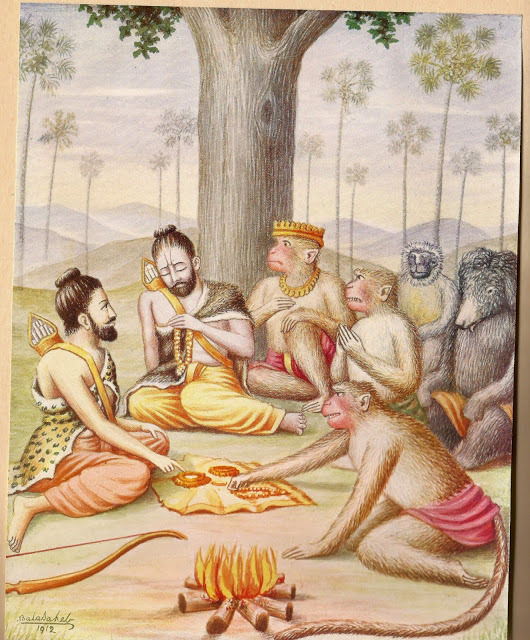|
Aruna (Hinduism)
Aruna ( sa, अरुण ) is the charioteer of Surya (Sun god) in Hinduism. He is the elder brother of Garuda. Aruna and Garuda are the sons of Vedic sage Kashyapa and his wife Vinata, daughter of Prajapati Daksha. His children were Sampati and Jatayu. He is also found in Buddhism and Jainism literature and arts. Mythology Birth Aruna is found in different, inconsistent Indian legends. In the epic ''Mahabharata'',Mani p. 55 he was born prematurely and partially developed from an egg. According to this version, Kashyapa Prajapati's two wives Vinata and Kadru wanted to have children. Kashyapa granted them a boon. Kadru asked for one thousand 'Dirghadeha' (meaning long bodied) Nāga (serpent) sons, while Vinata wanted only two yet extremely strong 'Divyadeha' (meaning emitting golden aura from body). Kashyapa blessed them, and then went away to a forest. Later, Kadru gave birth to one thousand eggs, while Vinata gave birth to two eggs. These incubated for five hundred year ... [...More Info...] [...Related Items...] OR: [Wikipedia] [Google] [Baidu] |
Vinata
In Hinduism, Vinata is the mother of Aruna and Garuda. She is one of the daughters of Prajapati Daksha. She is married to Kashyapa, along with several of her sisters. She bears him two sons, the elder being Aruna and the younger being Garuda. Legend Vinata is a daughter of Daksha. Kadru is her elder sister, and when they both lived with Kashyapa as his wives, and attended to all his comforts, he blessed them by granting each of them a boon. Kadru asked for a thousand naga sons who should be valiant. Prompted by her sister's demand for sons, Vinata asked for only two sons, who should be more powerful and brighter than Kadru's children. Kashyapa granted them their wishes. After his wives became pregnant, he advised them to look after the children, and then left for his penance in the forest. Birth of Aruna According to the Mahabharata, Kadru went on to lay a thousand eggs, and Vinata, two eggs. Both of them kept their eggs in hot pots. In their five-hundredth year, the eggs of ... [...More Info...] [...Related Items...] OR: [Wikipedia] [Google] [Baidu] |
Solar Eclipse
A solar eclipse occurs when the Moon passes between Earth and the Sun, thereby obscuring the view of the Sun from a small part of the Earth, totally or partially. Such an alignment occurs during an eclipse season, approximately every six months, during the new moon phase, when the Moon's orbital plane is closest to the plane of the Earth's orbit. In a total eclipse, the disk of the Sun is fully obscured by the Moon. In partial and annular eclipses, only part of the Sun is obscured. Unlike a lunar eclipse, which may be viewed from anywhere on the night side of Earth, a solar eclipse can only be viewed from a relatively small area of the world. As such, although total solar eclipses occur somewhere on Earth every 18 months on average, they recur at any given place only once every 360 to 410 years. If the Moon were in a perfectly circular orbit and in the same orbital plane as Earth, there would be total solar eclipses once a month, at every new moon. Instead, because the Moon ... [...More Info...] [...Related Items...] OR: [Wikipedia] [Google] [Baidu] |
Characters In The Ramayana
''Ramayana'' is one of the two major Sanskrit ancient epics (''Itihasa''s) of Hindu literature. It was composed by sage Valmiki. This is a list of important characters that appear in the epic. A Agastya Agastya was a son of sage Pulastya and brother of sage Vishrava. He was an uncle of Ravana. Agastya and his wife Lopamudra met Rama, Sita, and Lakshmana during their exile and gave them a divine bow and arrow. Ahalya Ahalya is the wife of the sage Gautama Maharishi. Many Hindu scriptures say that she was seduced by Indra (the king of gods), cursed by her husband for infidelity, and liberated from the curse by Rama (an avatar of the god Vishnu). Akampana Akampan was a maternal uncle of Ravana. He was one of ten sons of Sumali and Ketumathi. He also had four sisters. He was one of the survivors of the battle between Khara and Dushana along with Shurpanakha. After escaping the deadly carnage, he instigated Ravana to kidnap Sita, thus indirectly making him one of the mast ... [...More Info...] [...Related Items...] OR: [Wikipedia] [Google] [Baidu] |
University Of California Press
The University of California Press, otherwise known as UC Press, is a publishing house associated with the University of California that engages in academic publishing. It was founded in 1893 to publish scholarly and scientific works by faculty of the University of California, established 25 years earlier in 1868, and has been officially headquartered at the university's flagship campus in Berkeley, California, since its inception. As the non-profit publishing arm of the University of California system, the UC Press is fully subsidized by the university and the State of California. A third of its authors are faculty members of the university. The press publishes over 250 new books and almost four dozen multi-issue journals annually, in the humanities, social sciences, and natural sciences, and maintains approximately 4,000 book titles in print. It is also the digital publisher of Collabra and Luminos open access (OA) initiatives. The University of California Press publishes in ... [...More Info...] [...Related Items...] OR: [Wikipedia] [Google] [Baidu] |
Robert Graves
Captain Robert von Ranke Graves (24 July 1895 – 7 December 1985) was a British poet, historical novelist and critic. His father was Alfred Perceval Graves, a celebrated Irish poet and figure in the Gaelic revival; they were both Celticists and students of Irish mythology. Graves produced more than 140 works in his lifetime. His poems, his translations and innovative analysis of the Greek myths, his memoir of his early life—including his role in World War I—''Good-Bye to All That'', and his speculative study of poetic inspiration ''The White Goddess'' have never been out of print. He is also a renowned short story writer, with stories such as "The Tenement" still being popular today. He earned his living from writing, particularly popular historical novels such as ''I, Claudius''; '' King Jesus''; ''The Golden Fleece''; and ''Count Belisarius''. He also was a prominent translator of Classical Latin and Ancient Greek texts; his versions of ''The Twelve Caesars'' and ... [...More Info...] [...Related Items...] OR: [Wikipedia] [Google] [Baidu] |
Monier Monier-Williams
Sir Monier Monier-Williams (; né Williams; 12 November 1819 – 11 April 1899) was a British scholar who was the second Boden Professor of Sanskrit at University of Oxford, Oxford University, England. He studied, documented and taught Languages of Asia, Asian languages, especially Sanskrit, Persian language, Persian and Hindustani language, Hindustani. Early life Monier Williams was born in Mombai, Bombay, the son of Colonel Monier Williams, Surveyor general, surveyor-general in the Bombay presidency. His surname was "Williams" until 1887, when he added his given name to his surname to create the hyphenated "Monier-Williams". In 1822, he was sent to England to be educated at private schools at Hove, Chelsea and Finchley. He was educated at King's College School, Balliol College, Oxford (1838–40), the East India Company College (1840–41) and University College, Oxford (1841–44). He took a fourth-class honours degree in Literae Humaniores in 1844. He married Julia Granth ... [...More Info...] [...Related Items...] OR: [Wikipedia] [Google] [Baidu] |
Vanara
In Hindu, Vanara ( sa, वानर, , forest-dwellers) are either monkeys, apes, or a race of forest-dwelling people. In the epic the ''Ramayana'', the Vanaras help Rama defeat Ravana. They are generally depicted as humanoid apes, or human-like beings. Etymology There are three main theories about the etymology of the word "Vanara": * Aiyanar suggests that ''vanara'' means "monkey" derived from the word ''vana'' ("forest"), Literally meaning "belonging to the forest" Monier-Williams says it is probably derived from ''vanar'' (lit. "wandering in the forest") and means "forest-animal" or monkey. * Devdutt Pattanaik suggests that it derives from the words ''vana'' ("forest"), and ''nara'' ("man"), thus meaning "forest man" and suggests that they may not be monkeys, which is the general meaning. * It may be derived from the words ''vav'' and ''nara'', meaning "is it a man?" (meaning "monkey") or "perhaps he is man". Identification Although the word Vanara has come to mean ... [...More Info...] [...Related Items...] OR: [Wikipedia] [Google] [Baidu] |
Gautama Maharishi
Gautama Maharishi ( sa, महर्षिः गौतम, ), was a sage in Hinduism, who is also mentioned in Jainism and Buddhism. Gautama is mentioned in the Yajurveda, Ramayana, and Gaṇeśa Pūrana and is known for cursing his wife Ahalyā, after she unknowingly had sex with Indra. Another important story related to Gautama is about the creation of river Godavari, which is also known as Gautami. Children According to Valmiki Ramayana, Gautama's eldest son with Ahalyā is Satananda. But according to Adi Parva of Mahabharata, he had two sons named Saradvan and Cirakari. Saradvan was also known as Gautama, hence his children Kripa and Kripi were called Gautama and Gautami respectively. A daughter of Gautama is referred too but her name is never disclosed in the epic. In Sabha Parva, he begets many children through Aushinara (daughter of Uśīnara), amongst whom eldest in Kakshivat. Gautama and Aushinara's marriage takes place at Magadha, the kingdom of Jarasandha. Acc ... [...More Info...] [...Related Items...] OR: [Wikipedia] [Google] [Baidu] |
Ahalya
In Hinduism, Ahalyā ( sa, अहल्या, IAST: Ahalyā) also known as Ahilya, is the wife of the sage Gautama Maharishi. Many Hindu scriptures say that she was seduced by Indra (the king of gods), cursed by her husband for infidelity, and liberated from the curse by Rama (7th avatar of the god Vishnu). Created by the god Brahma as the most beautiful woman, Ahalyā was married to the much older Gautama. In the earliest full narrative, when Indra comes disguised as her husband, Ahalyā sees through his disguise but nevertheless accepts his advances. Later sources often absolve her of all guilt, describing how she falls prey to Indra's trickery. In all narratives, Ahalyā and Indra are cursed by Gautama. The curse varies from text to text, but almost all versions describe Rāma as the eventual agent of her liberation and redemption. Although early texts describe how Ahalyā must atone by undergoing severe penance while remaining invisible to the world and how she is pu ... [...More Info...] [...Related Items...] OR: [Wikipedia] [Google] [Baidu] |
Sugriva
''This character is about the vanara, in the Ramayana.'' Sugriva ( sa, सुग्रीव, , ) is a character In the ancient Indian epic Ramayana. He is the younger brother of Vali, whom he succeeded as ruler of the vanara kingdom of Kishkindha. Rumā is his wife. He is a son of Surya, the Hindu deity of the sun. As the king of the vanaras, Sugriva aided Rama in his quest to liberate his wife Sita from captivity at the hands of the rakshasa king Ravana. Nomenclature He is also known as jv, Sugriwa, th, Su-khrip, lo, Sugeep, km, Sukhreeb, Creole: ''Soogrim'', lo, Sangkip, ta, Cukkirivan, my, Thugyeik, Sugreeva or Sugreev. Legend The story of Sugriva is part of Ramayana and in an abbreviated version, is also present in the Mahabharata. The king of Kishkindha, Vrikshraja, was a divine creature born from Brahma’s tilaka. He had the body of a human and face and tail of a monkey. He was instructed to roam the forests and kill demons. One day, Vriksharaja entered a ... [...More Info...] [...Related Items...] OR: [Wikipedia] [Google] [Baidu] |
Vali (Ramayana)
Vali ( sa, वाली, nominative singular of the stem वालिन् (''Valin'')), also known as Bali, was a king of Kishkindha in the Hindu epic Ramayana. He was the husband of Tara, the biological son of Vriksharaja, the elder brother of Sugriva, and father of Angada. He was killed by Rama, an ''avatar'' of Vishnu. Vali was invincible during the''Treta Yuga''. Vali defeated some great warriors, only because he was blessed with the ability to obtain half the strength of his opponent. Rama killed Vali by shooting him in the chest. However, during his first attempt, Rama could not recognise between Vali and Sugriva due to their resemblance. Thus, during the next attempt, Sugriva wore a garland of red flowers and went to battle with Vali. This time, Rama could recognise Vali and shot an arrow that killed him. Early life Vali was the husband of Tara. As one myth goes, fourteen types of gem or treasure were produced from the churning of the ocean during the time of Kurma ... [...More Info...] [...Related Items...] OR: [Wikipedia] [Google] [Baidu] |
Indra
Indra (; Sanskrit: इन्द्र) is the king of the devas (god-like deities) and Svarga (heaven) in Hindu mythology. He is associated with the sky, lightning, weather, thunder, storms, rains, river flows, and war. volumes/ref> Indra's myths and powers are similar to other Indo-European deities such as Jupiter, Perun, Perkūnas, Zalmoxis, Taranis, Zeus, and Thor, part of the greater Proto-Indo-European mythology. Indra is the most referred deity in the ''Rigveda''. He is celebrated for his powers, and as the one who killed the great evil (a malevolent type of asura) named Vritra, who obstructed human prosperity and happiness. Indra destroys Vritra and his "deceiving forces", and thereby brings rains and sunshine as the saviour of mankind. He is also an important deity worshipped by the Kalash people, indicating his prominence in ancient Hinduism. Indra's significance diminishes in the post-Vedic Indian literature, but he still plays an important role in various m ... [...More Info...] [...Related Items...] OR: [Wikipedia] [Google] [Baidu] |








.jpg)